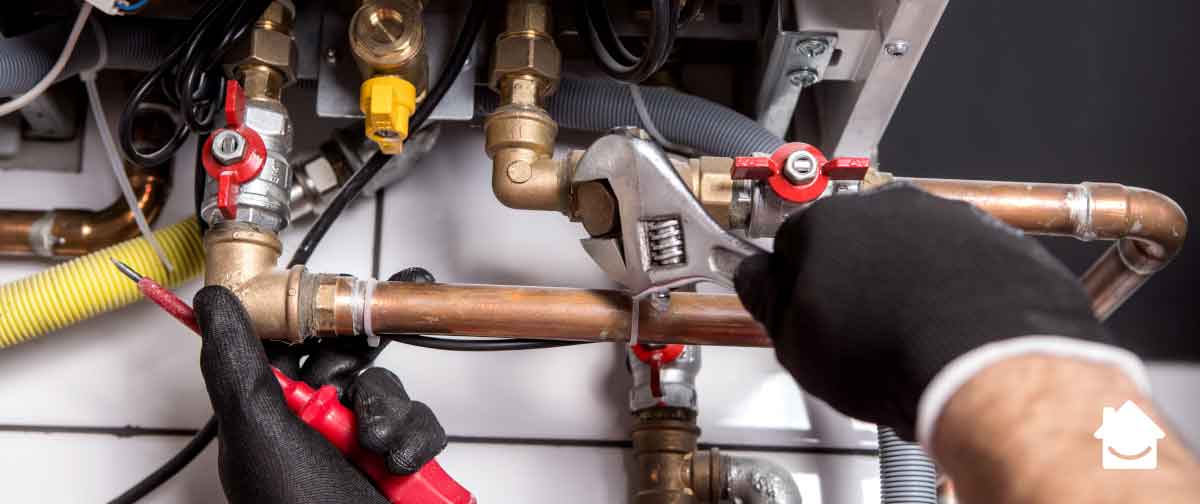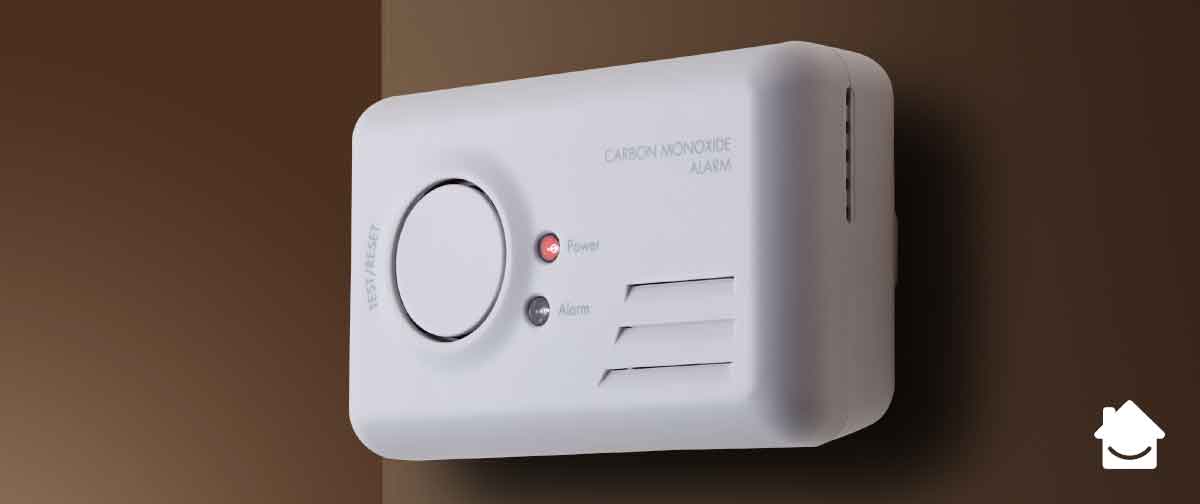Home maintenance advice
Gas Safety Checks for Landlords
05 Oct 2020 • 8 minutes


Landlords are legally required to arrange for annual gas safety checks to be carried out at their property, according to The Gas Safety (Installation and Use) Regulations 1998, and as amended in 2018.
This straightforward guide to gas safety will help you understand your responsibilities as a landlord in full, including the government’s new COVID-19 guidance for landlord gas safety checks.
All landlords in the UK are required to provide or carry out three things:
When tenants vacate rented premises, Landlords need to ensure that gas fittings and appliances are safe before re-letting. Appropriate checks should be carried out, and any unsafe equipment rectified or removed before a new tenancy begins.
If you are a landlord who needs advice on getting a gas safety or CP12 record, or you need to know how to safely maintain your gas appliances, read on.
Once a year, landlords should arrange for a Gas Safe registered Home Expert to visit their property to ensure gas fittings and appliances are up to safety standards. Once your gas safety check is complete, you’ll be issued with a Gas Safety or CP12 record.

A Gas Safe registered Home Expert will carry out the following inspections at your property:
Please note: if you’re a landlord whose tenants have brought any of their own gas appliances, you are responsible for any pipework that supplies gas to them.
You might hear the Landlords’ Gas Safety record being referred to as a ‘CP12’. It’s the same document. CP12 is an abbreviation of CORGI Proforma 12, named because CORGI was the official regulatory body for UK gas safety between 1991 and 2009. In 2009 CORGI was replaced by the Gas Safe Register and the document adopted other names like the Landlord Gas Safety Certificate or the Gas Safety Record. They all mean the same thing.
Landlords are required by law to have their Gas Safety record updated every year, to prove that all the life-saving gas safety checks have been made at your property. Once your gas safety check is completed, you’ll be issued with a Gas Safety or CP12 record. As the landlord of the property, you are required to give a copy to your tenants within 28 days or give one to new tenants when they move in.
Top tip: It’s also a great idea as a responsible landlord to show new tenants how to turn off the gas at the mains and tell them what to do in a gas emergency.
If you want to save on the cost of your Gas Safety check, our HomeServe Landlord Insurance, which comes with an optional Gas Safety Certificate (CP12) and boiler service, is free for your first year. Here are 5 reasons to book an annual boiler service if you’re not sure you need one.
Failure to do so may result in loss of life. There is also a risk of prosecution, which could result in imprisonment, a fine of up to £20,000, or both, for each offence. If the case is then referred to the Crown Court the maximum penalty may be imprisonment, an unlimited fine, or both.
After a Gas Safe registered Home Expert has visited your property and completed your annual check, they will document the following on the record:
Your Gas Safety check cost can vary as it may depend on how many appliances need checking, and on the company and engineer you use.
HomeServe offers a Landlords’ Gas Safety Inspection with CP12 record from £84 and there are options to include a boiler service at the same time. Alternatively, you could get our comprehensive Landlord Insurance cover for £25 a month, which comes with an optional Gas Safety record (CP12) and boiler service – both free in your first year. See our landlord insurance cover options and prices.
As part of the maintenance of the property, you’ll need to be able to show you have regularly maintained pipework, flues and appliances. The Gas Safe Register and the Health & Safety Executive (HSE) recommends that when your Gas Safe registered engineer visits to carry out your annual safety check, you ask them to also:
Another long-term tip is to ensure that rooms with appliances are properly ventilated with a purpose provided ventilator and that your tenants report any issues or faults straight away.
If repairs are required to a gas appliance or other gas fitting, these must be carried out by a Gas Safe Registered Home Expert. HomeServe can help find one in your area.

Yes. Landlords in England are required to ensure smoke alarms are installed on every level of their rented residential accommodation and ensure carbon monoxide alarms are fitted in every room with a solid fuel heating appliance, including open fireplaces being used/not blocked off. In Scotland, new regulations have firmly shifted the duty of care regarding the provision of carbon monoxide detection to landlords. The legislation applies to all landlords in Scotland renting out a property with fixed combustion appliances of any kind, with the exception of appliances used exclusively for cooking. In Wales and Northern Ireland landlords are required to fit both smoke and carbon monoxide alarms when building, extending or renovating, or when installing a new, or replacing an old, fuel-burning appliance.
Wherever your location, it’s vital to protect your tenants and your property with smoke and carbon monoxide alarms. Carbon monoxide poisoning can be life-threatening and with no smell or taste it’s difficult to tell if there’s a leak. If the carbon monoxide alarm goes off or you suspect there is a gas leak, you must:
If you or your tenants can smell gas in the property follow our guide for more information.
With an up-to-date Gas Safety record, you have peace of mind that your gas fittings, boiler and gas appliances are safe for your tenants and confirmation that you are meeting your legal obligations as a landlord.
Once you’ve given a copy of your Gas Safety certificate or record to your tenants for their records, make sure you keep a hard copy of it filed in a safe place. You’ll need it for when new tenants move in, any work is done on your appliances, and also when your next annual check is due.
One of HomeServe’s approved Gas Safe® Registered Home Experts can provide you with a Gas Safety Inspection (CP12) plus carry out a boiler service to help you keep your boiler running smoothly.
Our help & advice articles cover Plumbing, Home heating, Electrical, Energy-saving and Home maintenance.